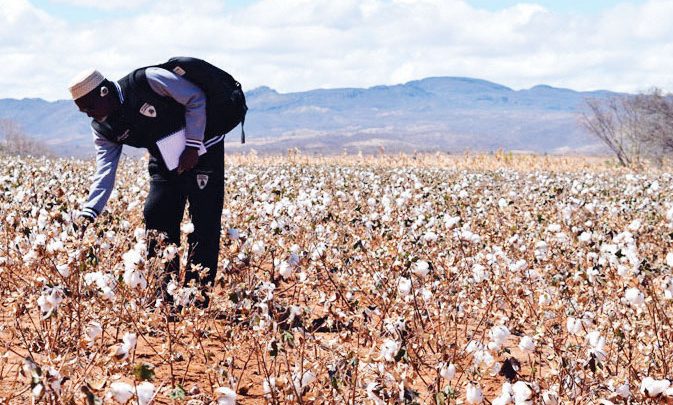
Cotton rakes in K3.4 billion

Malawi’s fourth export crop by value, cotton, raked in about K3.4 billion during the 2021 season, figures from the Cotton Farmers Association of Malawi (Cofam) show.
But the association believes that the money remains way below potential as the sector could bring in more revenue if well managed.
Cofam Chief Executive Officer Synowden Mbalafala said farmers produced 9,000 metric tonnes of the commodity which on average it fetched K360 per kilogramme.
Mbalafala said in the just ended season, market demand was pegged at 55, 000 metric tonnes.
He said there is a need to consider revamping the industry to woo more farmers to start producing.
“The market has been good this year and we have realised a good amount of money but many people are no longer interested in cotton farming because of its market system and to address that, we are piloting contract farming to increase competition,” he said.
Recently, the industry adopted contract farming as an exit strategy to zone farming system in a bid to increase competition among ginners and offer farmers better prices for the commodity.
Under the zone system, farmers were obliged to sale the produce to the only ginner who gave the farmer inputs while under contract farming, a farmer will be able to sale to another ginner provided they pay the loan to the contracting ginner.
In an effort to revamp the sector, government has since allocated K2 billion to the industry for research and trials of new seeds that are disease resistant and mature fast.
Ministry of Agriculture Spokesperson Graciun Lungu said in an interview that apart from the allocated money, the ministry is exploring ways to make cotton farming possible for irrigation.
“We have placed measures to bring irrigation farming into cotton and this will happen in districts where rain-fed cotton farming is not doing well and our target is to turn idle farms which were being used for tobacco into cotton farms which we believe will increase production,” he said.
Malawi is currently scouting complements of tobacco, Malawi top export crop, whose production faces extinction due to the anti-smoking lobby and weather-related shocks.
SOURCE: THE TIMES GROUP